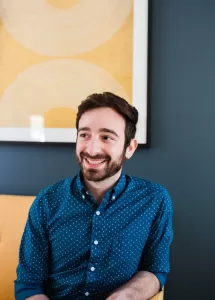Research & Articles
Homeopathic Treatment Strategies for Childhood Migraines
Homeopathic Research:
Results of a prospective, multicenter, observational study
J Altern Complement Med. 2013 Feb;19(2):119-23. doi: 10.1089/acm.2011.0821. Epub 2012 Sep 14
The study objective was to evaluate the effectiveness of homeopathic medicines for the prevention and treatment of migraine in children, conducted in 12 countries worldwide.
Fifty-nine physicians trained in the prescription of homeopathic medicines and 168 children, aged 5-15 years, with definite or probable migraine diagnosed were the subjects in this study.
The frequency, intensity, and duration of migraine attacks in the 3 months prior to inclusion were compared with those during the 3-month follow-up period. Pertinent data was collected using questionnaires completed by the doctor and the patient or his/her parent/guardian. The secondary outcome measure was the impact of homeopathic medicines on education, measured as absence from school.
RESULTS:
The frequency, severity, and duration of migraine attacks decreased significantly during the 3-month follow-up period (all p<0.001). Preventive treatment during this time consisted of homeopathic medicines in 98% of cases (mean=2.6 medicines/patient). Children spent significantly less time off school during follow-up than before inclusion (2.0 versus 5.5 days, respectively; p<0.001). The most common preventive medicines used were Ignatia amara (25%; mainly 9C), Lycopodium clavatum (22%), Natrum muriaticum (21%), Gelsemium (20%), and Pulsatilla (12%; mainly 15C). Homeopathy alone was used for the treatment of migraine attacks in 38% of cases. The most commonly used medicines were Belladonna (32%; mainly 9C), Ignatia amara (11%; mainly 15C), Iris versicolor (10%; mainly 9C), Kalium phosphoricum (10%; mainly 9C), and Gelsemium (9%; mainly 15C and 30C).
CONCLUSIONS:
The results of this study demonstrate the interest of homeopathic medicines for the prevention and treatment of migraine attacks in children. A significant decrease in the frequency, severity, and duration of migraine attacks was observed and, consequently, reduced absenteeism from school.
Frank Molignano, CCH, RSHom(NA), is a board-certified homeopath, educator, and clinic supervisor with over 15 years of experience helping children and families manage chronic conditions like migraines through homeopathy. He works with clients both in-person and virtually, making homeopathy accessible no matter where you are. When he’s not supporting clients in their health journeys, he enjoys bouldering, paddle-boarding, and dancing. Learn more about Frank here.

